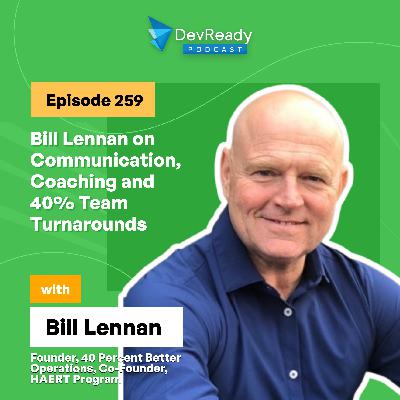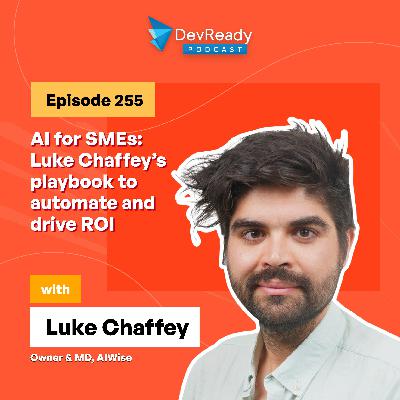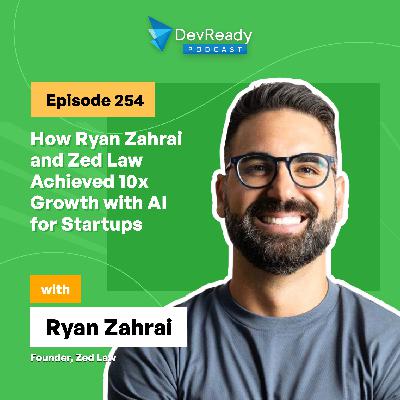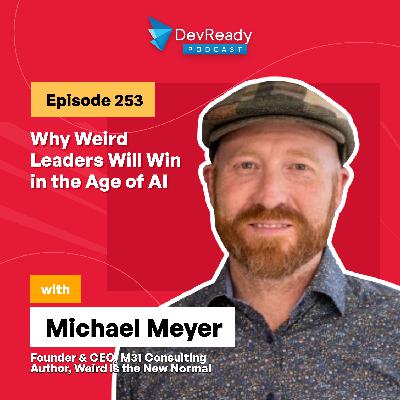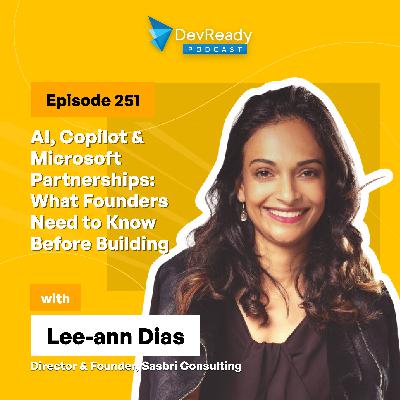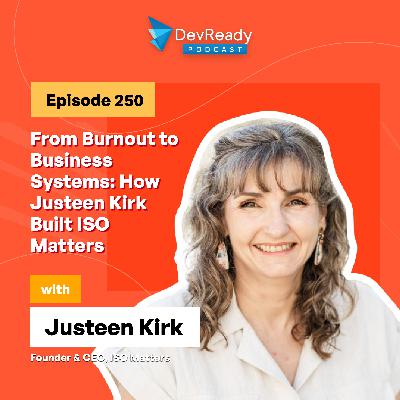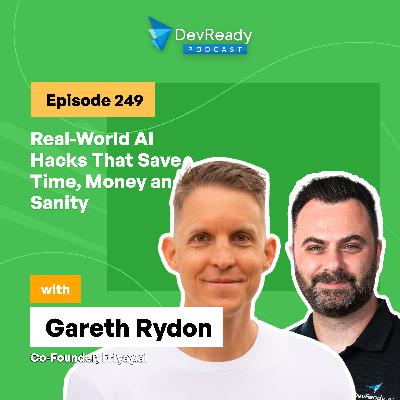AI Roundup with Gareth Rydon: How AI Is Redefining Creativity and Productivity | Ep 263 | DevReady Podcast
Description
In this AI Roundup episode of the DevReady Podcast, Anthony Sapountzis, CTO and Co-Founder of Aerion Technologies and DevReady.ai | AI-Powered App Planning for Non-Tech Founders , is joined by Gareth Rydon, Co-Founder of Friyay.ai, to explore how artificial intelligence is reshaping creativity, collaboration and productivity. Together they discuss OpenAI’s Sora app, the future of AI filmmaking, the evolution of AI assistants like ChatGPT, Claude and Gemini, and how teams can integrate AI more effectively. This episode offers actionable insights for creators, developers and business leaders looking to embrace the power of AI tools in smarter, more intentional ways.
Anthony and Gareth begin by examining the cultural impact of OpenAI’s Sora app, which has sparked a flood of low-quality, AI-generated videos across social media. Gareth calls this “AI slop”, highlighting the danger of creativity being replaced by noise and spectacle. Anthony likens it to “TikTok at its worst”, questioning whether such platforms can sustain meaningful content or ethical monetisation. Both agree that while AI tools can unlock creativity, their true potential lies in empowering skilled creators and storytellers rather than fuelling superficial trends.
The discussion turns to how AI could make filmmaking more accessible to creators with big ideas but limited resources. Gareth believes AI will open the door for new creative voices, while Anthony notes that truly exceptional work will still stand out. They reference OpenAI’s $10 million investment in an AI-made film, debating whether it will be seen as “an AI-made film” or simply “a great film that happens to use AI.” Both agree the future of AI in creative industries depends on how well these tools integrate into authentic storytelling and artistic expression.
Gareth and Anthony explore the evolution of AI assistants across major tech platforms. Gareth discusses Apple’s upcoming Apple Intelligence update that connects Siri to ChatGPT, while Anthony notes Microsoft’s integration of Claude into Copilot, showing a clear trend toward flexibility and model diversity. They also unpack the latest ChatGPT Teams features, praising its project-sharing improvements but highlighting the ongoing lack of true team collaboration. For AI to thrive in enterprise environments, they argue, it must evolve from personal tools to shared digital teammates that enhance productivity and transparency.
Anthony and Gareth dive into OpenAI’s Agent Builder, assessing its impact on existing automation platforms like n8n, Zapier and Make. Gareth stresses that learning how to design and optimise workflows is more valuable than jumping from one platform to another. They discuss combining AI agents with simpler automations to improve reliability and debugging. The pair also touch on voice-driven workflows using tools like WhisperFlow, praising its creative potential but acknowledging privacy considerations. Their advice is clear: the future belongs to those who understand processes, not just prompts.
Gareth shares his daily “AI stand-up” ritual, where he briefs tools like Claude, Gemini and Activity to plan his day before team meetings. This structured approach helps him maintain focus and efficiency. Anthony compares it with his own spontaneous use of AI and introduces ChatGPT Pulse, a new feature that proactively updates users on ongoing tasks. They explore how AI is moving from reactive to proactive assistance, signalling a shift toward intelligent automation that anticipates user needs.
In the final segment, Gareth explains how prompting styles should adapt to different contexts. When using AI within apps like Google Sheets or Docs, he recommends being more precise and task-specific, treating AI as a contextual assistant rather than a general chatbot. Anthony shares his “keyword-first” prompting strategy, shaped by years of expert Googling, and praises its clarity and speed. Together, they discuss how voice feedback tools such as WhisperFlow improve real-time collaboration, and they highlight the need for better task management in AI platforms. Until then, Anthony uses Trello as a practical workaround to keep track of open AI projects.
#AIConversations #AIPodcast #ArtificialIntelligence #Automation #AIWorkflows #DevReadyPodcast #AerionTechnologies





